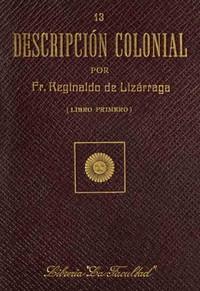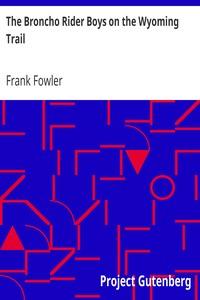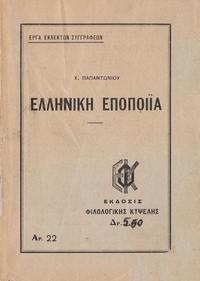|
|
Read this ebook for free! No credit card needed, absolutely nothing to pay.Words: 166786 in 33 pages
This is an ebook sharing website. You can read the uploaded ebooks for free here. No credit cards needed, nothing to pay. If you want to own a digital copy of the ebook, or want to read offline with your favorite ebook-reader, then you can choose to buy and download the ebook.

: Life of Frederick Courtenay Selous D.S.O. Capt. 25th Royal Fusiliers by Millais John Guille - Selous Frederick Courteney 1851-1917; World War 1914-1918 Campaigns Africa@FreeBooksWed 07 Jun, 2023 , all of which I am forced to pay. I have to buy a great many things which I could not help and I have spent a lot of my money on them. I will write them down to show you that not one of them was extravagance but quite the opposite. "7s. 6d. to have my watch mended, 1s. to go to Harbro' to get my watch and come back. 1s. to have my dirty clothes washed. 2s. for a book I have to use at Rugby which I had not got. 3s. to come from Welton to Rugby after coming back to get my boxes. All these were necessary, weren't they? "It is not my fault that there are such a lot of expenses at a public school, but it is only the first half. Please send in a registered letter, I have seen a great many boys receive them. I have passed very high, 10th out of 75, and that will partly make up to you for some of the subscriptions. Give my best love to Papa and brothers and sisters. "I remain your affectionate son, "Freddy." From this time his life at Rugby is thus given in his own words:-- "In January, 1866, when John Leroux was just fourteen years of age, he easily passed the entrance examination to the great school in the Midlands and became a member of the house which his old friend Jim Kennedy had entered just a year earlier. Here he spent two and a half very happy years, and as at the end of that time he was only sixteen, he would in the ordinary course have continued his studies for at least another two years before leaving school, had it not been his father's wish that he should go abroad to learn French and German before reaching an age at which it would be necessary to settle down to the real business of life and make his own living. At the great school there were three half-holidays weekly, but the boys were expected to do a good deal of preparation for the next day's lessons during their leisure time. Some boys shirked these out-of-class studies, but Leroux always did whatever was expected of him most conscientiously and often very slowly and with much labour, as he never used a crib to assist him with his Latin and Greek translations. He was not at all brilliant, but was well up in the school for his age, and had he stayed another term would have been in the sixth--the highest form in the school. However famous the great Midland school may have been fifty years ago, as a seat of learning, it was certainly not less famous for the great game of football, the playing of which was as compulsory on the scholars as the study of Greek. Primitive Rugby football was a very different affair to the highly scientific game of the present day. There was more running with the ball, far less kicking into touch, and no heeling out behind the scrimmage. Hacking was not only permissible but was one of the main features of the game, and when the ball was put down in the scrimmage the object of each side was to 'hack it through,' that is, to clear a path for the ball by kicking the shins of every one in the way as hard as possible. There were twenty boys on each side in the old Rugby game of whom the backs and half-backs only numbered five altogether--such a thing as a three-quarter back was undreamt of--so that there were fifteen forwards on each side. When anyone ran with the ball, the cry was 'hack him over,' and as often as not the runner was brought down with a neat kick on the shin. It was altogether a rough, possibly a rather brutal game; but it made the boys strong and hardy, and with the exception of badly bruised shins there were very few accidents. A young boy, on his first entrance to the big school, could only wear duck trousers at football, but if he played up, and did not flinch from the hacking, the Captain of his twenty gave him his 'flannels' and then exchanged his duck for flannel trousers. There was no school twenty, and therefore no school cap, and all the most hotly contested matches were between the different houses for the honour of being 'cock house.' Every house had its own cap, but in each house, except in the case of the school house, where there was a large number of pupils, there were only a few caps in each football twenty. For instance, in Leroux's house, where there were fifty-two pupils, there were only four who had got their caps. Though one of the youngest boys in the house Leroux threw himself into the game with a zest and enthusiasm which at once compelled attention, and won him his 'flannels' in his first term, and after playing up well in the first great match in the autumn term of the same year he was given his cap. He thus got his cap whilst still in his fourteenth year, and was the youngest boy in the whole school who possessed that much-coveted prize. The only other sport besides football indulged in by the boys at the great school during the term between Christmas and Easter was that known as 'house washing.' Led by one of the oldest and strongest boys, the whole house were accustomed to spend one half-holiday every week, during the cold, damp, dreary months of February and March, in jumping backwards and forwards over a small brook or river, which at that time of the year was usually swollen by recent rain. The first jumps were taken across the narrowest parts of the stream, and here only the youngest and weakest boys got into the water. But it was a point of honour to go on taking bigger and bigger jumps, until every boy in the house had failed to reach the opposite bank and all had got thoroughly soused. The last jump was known as 'Butler's Leap.' Here the stream ran through a tunnel beneath one of the high roads traversing the district, but before doing so it ran for a short distance parallel with the road, which had been built up to the height of the bridge above it. From the brick wall on either side of the bridge low wooden barriers, perhaps two and a half feet high, had been placed on the slope of the road on either side to the level of the fields below, and it was thus possible to get a run across the whole width of the road and leap the low barrier in an attempt to reach the opposite bank of the stream, which was here over twenty feet wide, and some twenty feet below the level of the top of the bridge. A hero named Butler had either been the first boy to attempt this desperate leap, or he had actually cleared the stream and landed on the opposite bank. Tradition concerning the details of the exploit varied, but whether Butler had made the great jump or only attempted it, he had immortalised his name by his daring. Now, only the biggest and most venturesome boys in each house were expected to attempt Butler's Leap, but nevertheless some of the younger ones always had a try at it, and amongst these were Kennedy and Leroux. They cleared the wooden barrier at the side of the road, and fell through the air into the stream below, but far short of the further bank, which they had to reach by swimming. "From a perusal of the letters which Leroux faithfully wrote every week to his mother, it would seem that with the exception of the fierce football contests for 'cock' house, and occasional snowball encounters with the town 'louts'--the contemptuous appellation given by the boys at the school to all their fellow-citizens--all his most interesting experiences were connected with his passion for birds'-nesting, and the pursuit of sport, at first with a saloon pistol and subsequently with a pea-rifle, on the domains of neighbouring landowners. The master of Leroux's house was a man of very fine character and most kindly disposition, and was much beloved by all his pupils. He was always a most kind friend to Leroux, and being a teacher of natural science--it was certain experiments in chemistry which had earned for him amongst the boys the sobriquet of 'Jim Stinks'--was much drawn to him by his very pronounced taste for the study of natural history, and his practical knowledge of English birds and beasts. In his second year at the school, Leroux got into the first mathematical set in the upper school, and on Tuesdays, Thursdays, and Saturdays, and on every third week on Mondays as well, had no lessons in school, after 10.15 in the morning. But on these half-holidays, or almost whole holidays, all the boys in the school had to attend and answer to their names at a 'call over' which was held at the big school during the afternoon, and from which no boy could escape except with the written permission of his house-master. During the summer Leroux's kindly house-master often allowed his favourite pupil to be absent from 'call over,' and he was thus able, by taking the train, to visit districts and pursue his ornithological rambles at quite a long distance from the school. On these distant excursions, however, although he paid no attention whatever to the numerous notice-boards intimating that trespassers would be prosecuted, he was never caught by a gamekeeper, though he had some good runs to escape their attentions. In the more immediate vicinity of the school, possibly the keepers were more on the look-out for birds'-nesting boys, who were often brought up by their captors before the headmaster, the great Dr. Temple, familiarly known in the school as 'Old Froddy.' This great and good man, however, always let the young trespassers off very lightly. "One Sunday afternoon Leroux was pursued by a gamekeeper to the very doors of the chapel, and indeed it was only under the stimulus of this pursuit that he could possibly have got in in time for the service, and 'cutting chapel' meant having to write out the whole of the fourth Georgic of Virgil, which was just over 500 lines. When the bell ceased tolling, Leroux was still some distance from the chapel door, and handicapped besides with the top-hat, which all the boys always had to wear on Sunday, and a clutch of sparrowhawk's eggs twisted up in his handkerchief, on which he had to hold his hand in his coat-pocket, to prevent them from shaking together. But old Patey, who always checked off the boys at 'call over' and on their entrance to the chapel, took in the situation at a glance and held the door ajar till Leroux got inside, and then slammed it to in the gamekeeper's face. Leroux fully expected that his pursuer would wait outside till chapel was over and try and identify him as he came out, but he probably got tired of waiting or else thought it impossible to pick out the boy he had chased and of whom he had only had a back view, amongst over five hundred other boys. "About three miles from the big school in the midst of a wide expanse of undulating meadow-land, interspersed with small woods, stood the fine old manor house of Pilton Range. As there was no game preservation on this estate, there were no keepers to shoot down magpies, carrion crows, kestrels and sparrowhawks, and Leroux consequently found it a very fine hunting ground for the nests of these birds. One day soon after the Easter holidays, and during his second year at the big school, Leroux paid a visit to the Pilton Range grounds, to look at a magpie's nest which he had found building a fortnight before. He was walking along a high hedge bordering a field, about a mile away from the house, when a man dressed as a labourer climbed over a gate at the other end of the field and came walking towards him. Now Leroux had often met labouring men on the Pilton Range estate before, but had never been interfered with in any way by them, so he paid no attention to the man who was now coming towards him, but walked quietly to meet him. The heavily built labourer came slouching along, apparently without taking the slightest interest in the approaching boy, but just as he was passing him, and without having previously spoken a word, he shot out his right hand, and caught Leroux by the waistcoat just beneath the collar. 'Well, what do you want?' said Leroux. "'You come along o' me to Mr. Blackstone'--the bailiff of the Pilton Range estate--said the labourer. Now Leroux had set his heart on visiting the magpie's nest, which he thought would be sure to contain eggs by now, and he was very averse to having his plans deranged by a visit to Mr. Blackstone. He first therefore offered to give his name to his captor to be reported to the headmaster, and when this proposition was received with a derisive laugh he pulled a letter from his coat pocket, and offered the envelope as a proof of his veracity. Possibly the heavy-looking lout who had taken him prisoner could not read. At any rate he never even glanced at the envelope which Leroux held out for his inspection, but merely repeating his invitation to 'come along o' me to Mr. Blackstone,' proceeded to walk towards the gate in the corner of the field at which he had made his first appearance. Leroux felt that he was very firmly held, for the labourer's fingers had passed through the armhole of his waistcoat, so he at first pretended to be resigned to his fate, and walked quietly along beside his obdurate captor. Just before reaching the gate, however, he gave a sudden wrench, and almost got free, but on his waistcoat beginning to tear, desisted. In the struggle, however, boy and man had swung face to face, as the labourer held Leroux with his right hand clenched on the left side of the boy's waistcoat near the collar. After this Leroux refused to walk beside his captor any further, but forced him to walk backwards and pull him every step of the way, and as he was then fifteen years old and a strong heavy boy for his age, their progress was slow. Fortunately for the labourer he was able to open the gate in the corner of the field in which he had made his capture, as well as two others which had to be passed before reaching the Hall, with his left hand, for he would never have been able to have got Leroux over these gates. Leroux would have attacked the man with his fists and hacked him on the shins, but he knew that that would have put him in the wrong with the headmaster, so he just leaned back, and made his captor walk backwards and pull him along every step of the way up to the Hall. He also made a point of bringing his heels down heavily on the labourer's feet at every step. At last, however, Leroux was dragged through the open gates of the great archway leading into the courtyard of Pilton Range, where at that moment Mr. Blackstone the bailiff happened to be standing just outside his office door. He was a tall, grim-looking old man with iron-grey hair, and seemed to be leaning heavily on a thick stick he held in his right hand as if he was slightly lame. "'I've brought un to see Mr. Blackstone,' said the perspiring labourer, still holding Leroux in his grasp. "'You young rascal, I'd like to lay this stick about your back,' said Mr. Blackstone, brandishing that formidable weapon in front of the captive. Then putting his left hand in his waistcoat pocket, he extracted a coin with his finger and thumb which Leroux thought was a two-shilling piece and offered it to his employee, remarking, 'Here's something for you, John; I see you've had some trouble with this young rascal.' Free books android app tbrJar TBR JAR Read Free books online gutenberg More posts by @FreeBooks
: Descripción colonial libro primero (1/2) by Liz Rraga Reginaldo De Rojas Ricardo Editor - South America Description and travel; America Early accounts to 1600@FreeBooksWed 07 Jun, 2023

: The Broncho Rider Boys on the Wyoming Trail Or A Mystery of the Prairie Stampede by Fowler Frank - Ranches Juvenile fiction; Cowboys Juvenile fiction; Wyoming Juvenile fiction@FreeBooksWed 07 Jun, 2023
|
Terms of Use Stock Market News! © gutenberg.org.in2025 All Rights reserved.






